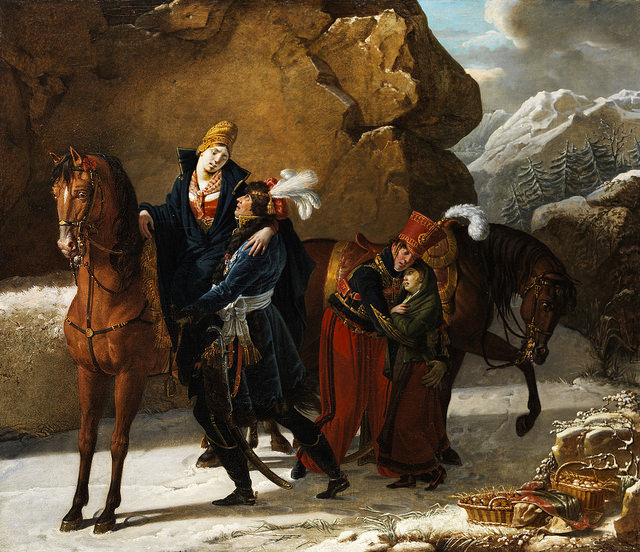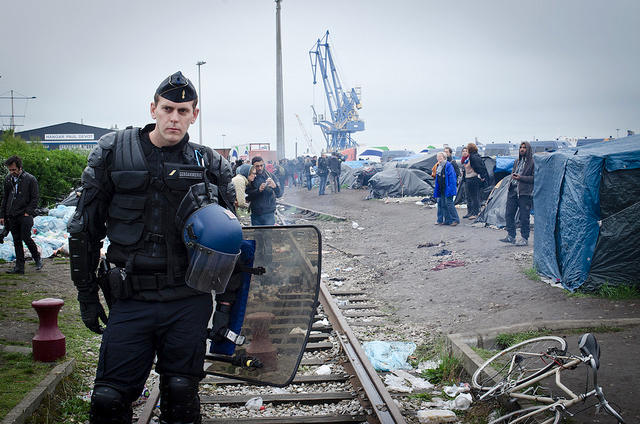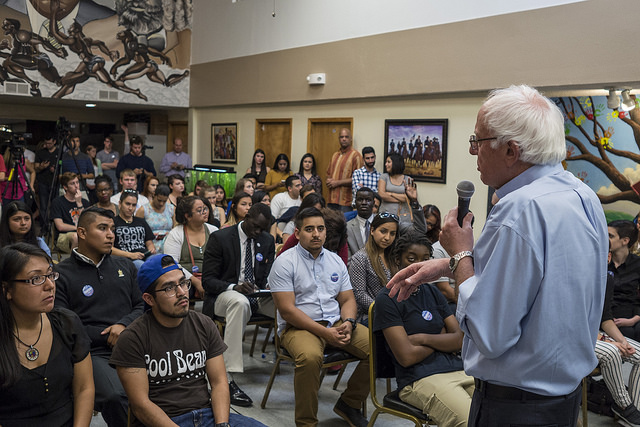With the new markets, which he opened at the point of the bayonet, and with the plunder of the continent, Napoleon returned to the farmer class with interest the taxes wrung from them. These taxes were then a goad to the industry of the farmer, while now, on the contrary, they rob his industry of its last source of support, and completely sap his power to resist poverty.
Indeed, an enormous bureaucracy, richly gallooned and well fed is that “idee Napoleonienne” that above all others suits the requirements of the second Bonaparte. How else should it be, seeing he is forced to raise alongside the actual classes of society, an artificial class, to which the maintenance of his own regime must be a knife-and-fork question?
One of his first financial operations was, accordingly, the raising of the salaries of the government employees to their former standard and the creation of new sinecures.
Another “idee Napoleonienne” is the rule of the parsons as an instrument of government. But while the new-born allotment, in harmony with society, in its dependence upon the powers of nature, and in its subordination to the authority that protected it from above, was naturally religious, the debt-broken allotment, on the contrary, at odds with society and authority, and driven beyond its own narrow bounds, becomes as naturally irreligious.
Heaven was quite a pretty gift thrown in with the narrow strip of land that had just been won, all the more as it makes the weather; it, however, becomes an insult from the moment it is forced upon the farmer as a substitute for his allotment. Then the parson appears merely as the anointed blood-hound of the earthly police,—yet another “idee Napoleonienne.” The expedition against Rome will next time take place in France, but in a reverse sense from that of M. de Montalembert.
Finally, the culminating point of the “idees Napoleoniennes” is the preponderance of the army. The army was the “point of honor” with the allotment farmers: it was themselves turned into masters, defending abroad their newly established property, glorifying their recently conquered nationality, plundering and revolutionizing the world. The uniform was their state costume; war was their poetry; the allotment, expanded and rounded up in their phantasy, was the fatherland; and patriotism became the ideal form of property. But the foe, against whom the French farmer must now defend his property, are not the Cossacks, they are the sheriffs and the tax collectors.
The allotment no longer lies in the so-called fatherland, but in the register of mortgages. The army itself no longer is the flower of the youth of the farmers, it is the swamp-blossom of the slum-proletariat of the farmer class. It consists of “remplacants,” substitutes, just as the second Bonaparte himself is but a “remplacant,” a substitute, for Napoleon. Its feats of heroism are now performed in raids instituted against farmers and in the service of the police;—and when the internal contradictions of his own system shall drive the chief of the “Society of December 10” across the French frontier, that army will, after a few bandit-raids, gather no laurels but only hard knocks.

It is evident that all the “idees Napoleoniennes” are the ideas of the undeveloped and youthfully fresh allotment; they are an absurdity for the allotment that now survives. They are only the hallucinations of its death struggle; words turned to hollow phrases, spirits turned to spooks. But this parody of the empire was requisite in order to free the mass of the French nation from the weight of tradition, and to elaborate sharply the contrast between government and society.
Along with the progressive decay of the allotment, the governmental structure, reared upon it, breaks down. The centralization of government, required by modern society, rises only upon the ruins of the military and bureaucratic governmental machinery that was forged in contrast to feudalism. The conditions of the French farmers’ class solve to us the riddle of the general elections of December 20 and 21, that led the second Bonaparte to the top of Sinai, not to receive, but to decree laws.
The bourgeoisie had now, manifestly, no choice but to elect Bonaparte. When at the Council of Constance, the puritans complained of the sinful life of the Popes, and moaned about the need of a reform in morals, Cardinal d’Ailly thundered into their faces: “Only the devil in his Own person can now save the Catholic Church, and you demand angels.” So, likewise, did the French bourgeoisie cry out after the “coup d’etat”: “Only the chief of the ‘Society of December 10’ can now save bourgeois society, only theft can save property, only perjury religion, only bastardy the family, only disorder order!”
Bonaparte, as autocratic Executive power, fulfills his mission to secure “bourgeois order.” But the strength of this bourgeois order lies in the middle class. He feels himself the representative of the middle class, and issues his decrees in that sense. Nevertheless, he is something only because he has broken the political power of this class, and daily breaks it anew. Hence he feels himself the adversary of the political and the literary power of the middle class. But, by protecting their material, he nourishes anew their political power.
Consequently, the cause must be kept alive, but the result, wherever it manifests itself, swept out of existence. But this procedure is impossible without slight mistakings of causes and effects, seeing that both, in their mutual action and reaction, lose their distinctive marks. Thereupon, new decrees, that blur the line of distinction. Bonaparte, furthermore, feels himself, as against the bourgeoisie, the representative of the farmer and the people in general, who, within bourgeois society, is to render the lower classes of society happy. To this end, new decrees, intended to exploit the “true Socialists,” together with their governmental wisdom.
This contradictory mission of the man explains the contradictions of his own government, and that confused groping about, that now seeks to win, then to humiliate now this class and then that, and finishes by arraying against itself all the classes.
Adapted from The 18th Brumaire of Napoleon Bonaparte. Photographs courtesy of thelostgallery and Skara Kommun. Published under a Creative Commons license.





